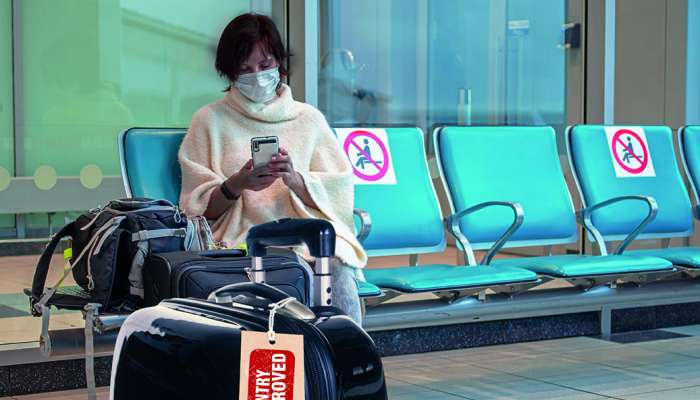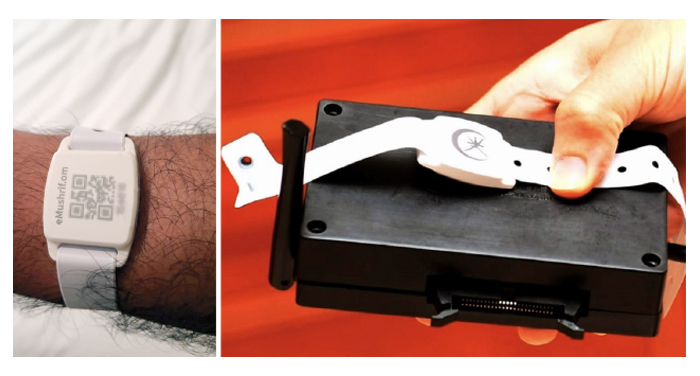

Muscat: Fewer incidents of people breaking quarantine rules are being seen every day, thanks to the publication of awareness material asking people to asking people to observe isolation rules.
To make sure people stay in quarantine, a number of Tarassud tracking devices have also been installed by Omani company eMushrif, which is responsible for setting up services to track those in isolation – whether domestic or institutional – in many public areas, including malls, banks, fuel stations, hotels, customer service centres, and some government institutions.
“The number of confirmed reports we received shortly after the decision to apply institutional quarantine to arrivals in the country was around 20 a day, but that fell to between just one and three, thanks to the publication of awareness material asking people to commit to quarantine rules,” said Haitham Al Shukaili, an official at eMushrif’s public relations department.
“As a representative of the Ministry of Health in following up and monitoring the extent to which people commit to isolation procedures, we conduct periodic checks and cooperate round-the-clock with the Royal Oman Police, and the Ministry of Social Development through Relief and Shelter Department,” he added.
Haitham Al Shukaili explained in detail how the Tarassud (Arabic for ‘surveillance’) tracking system installed in buildings worked to identify people violating quarantine. Those required to enter isolation are provided a Tarassud bracelet on arrival in the country, which they are required to wear for the entire duration of their quarantine period.
“This is an Omani-made device which is professionally perfected and sophisticated that is installed in the entrances of public spaces,” he explained. “When a person wearing a Tarassud bracelet approaches these entrances, it detects him up to a range of 30 metres away, and accordingly sounds out an alarm. There is also a SIM card in the device, which sends the data of the person who has violated quarantine to the company’s report centre.
“The company verifies this data, and once completed, this information is sent to the Royal Oman Police,” he added.
“Tarassud devices have been distributed and installed in the Sultanate, all the way from Al Mazyona in the Governorate of Dhofar, to Khasab in the northern areas of Musandam. About 150 Tarassud devices have been set up.”
To go through reports of people allegedly violating quarantine, two centres have been set up: the first is run by eMushrif, while the second is operated by the Shelter and Relief Department of the Ministry of Social Development. Reports received by the latter centre are transferred to the one run by eMushrif.
“We deal with these reports by verifying their circumstances,” said Al Shukaili. “Once they have been verified, and it has been proven that quarantine was indeed violated, then we send the relevant information to the Royal Oman Police.
“While we do monitor any quarantine violation reports, we first need to see whether these claims are indeed true,” he explained. “Sometimes, it becomes clear to us that there are actual reasons for people to break their quarantine rules. For example, they might have needed to go to the hospital in case of an emergency.”
“We do ask the people who have supposedly violated quarantine whether the reports we’ve received are 100 per cent true, and only if we find that the person has broken either home or institutional isolation, only then do we forward this case of violation to the ROP,” he added.